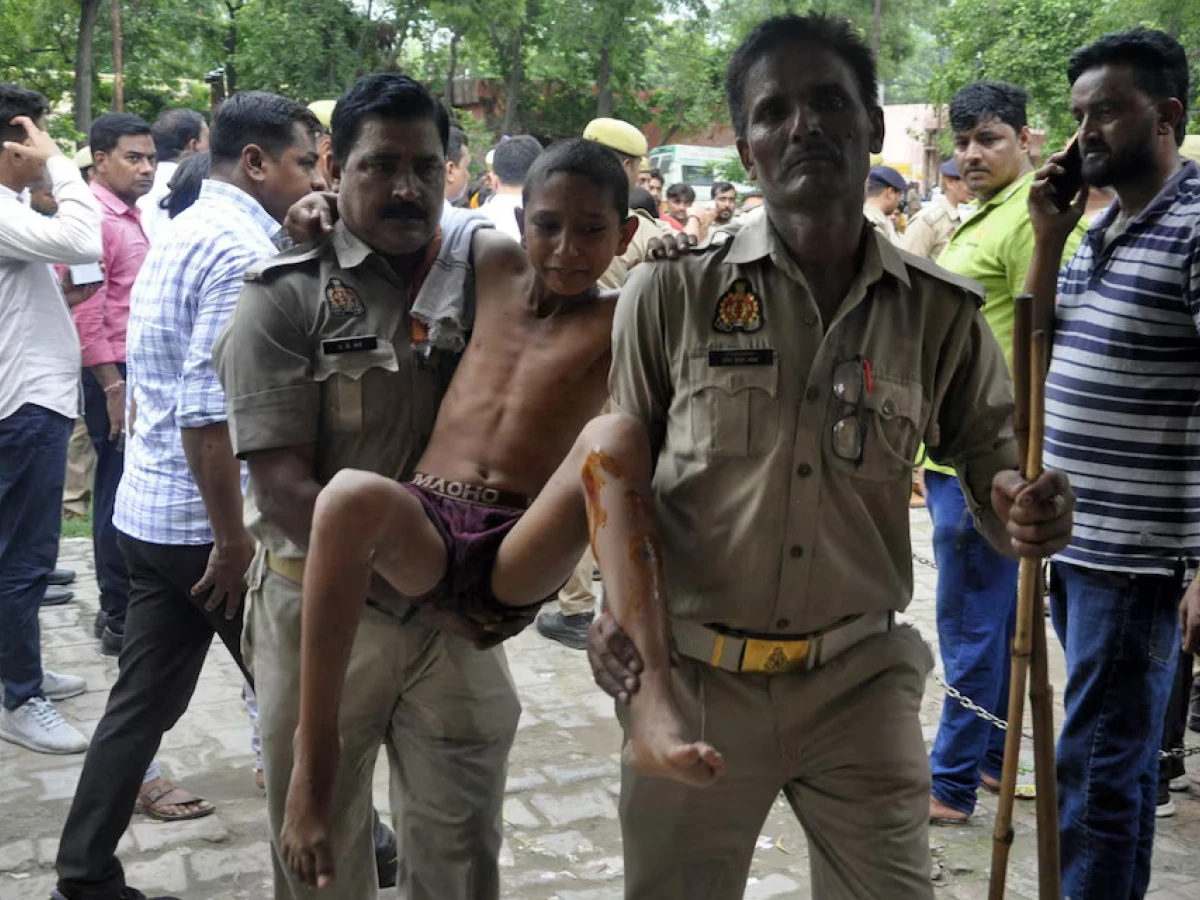
India stampede: About 116 killed at religious event in Hathras district
Stampedes and other accidents involving large crowds at religious gatherings and pilgrimage sites have happened in the past.
NEW DELHI, July 2 (Reuters) - At least 116 people, many of them women and children, were killed in a stampede at a Hindu religious gathering in northern India on Tuesday, authorities said, in one of the country's worst such tragedies in years.
The stampede happened in a village in Hathras district in Utter Pradesh, about 200 km (125 miles) southeast of the national capital New Delhi, where authorities said thousands had gathered in sweltering late afternoon temperatures.
The stampede occurred when a crowd of devotees started pushing towards the stage after the event to touch the preacher, who was coming down, said Yogi Adityanath, chief minister of Uttar Pradesh, India's most populous state.
While the cause was not immediately clear, Hathras district administrator Ashish Kumar suggested it may have been "due to overcrowding at the time when people were trying to leave the venue".
Another senior state official, Chaitra V., told broadcaster India Today that people may have lost their footing as they sought water in the heat.
"There was wet mud at one place where people may have slipped. Also because of the heat, people may have made their way to the spot where water was kept and that could have caused the incident as well," she said, adding that 18 were injured and in hospital.
Police said they had launched an investigation and promised action against anyone found to be responsible, adding that the gathering may have been larger than had been permitted.
"Lapses by authorities will also be investigated and action will be taken on the basis of the report which will be available within 24 hours," state police chief Prashant Kumar said.
Video clips recorded by news agency ANI, in which Reuters has a minority stake, showed bodies piled into the back of trucks and laid out in vehicles.
Purses and bags covered in dust, were heaped up at the venue, with people sitting on their haunches sifting through them to identify their belongings.
Mobile phones were similarly piled together, waiting to be claimed by their owners.
A video on social media showed a large crowd packed into a tented area, standing and listening to devotional tunes as they waved their hands in the direction of the religious leader who sat on a stage.
It also showed some women hanging on to the bamboo poles holding up the canopy to get a better view above the heads of the large crowd.
Reuters could not immediately verify the social media images.
"There must have been about 50,000 people...at the gate on the highway, some people were going left and some people were going right, the stampede was caused in that confusion," Suresh Chandra, a witness who was at the gathering, told local media.
Seema, a woman who travelled from a town almost 60 km away to attend the event, said she was leaving the venue when the stampede occurred. She was accompanied by three relatives, two of whom were killed.
Stampedes and other accidents involving large crowds at religious gatherings and pilgrimage sites have happened in the past and are often blamed on poor crowd management.
A stampede in central India in 2013 killed 115 people, while nearly 250 died in 2008 and more than 340 were killed during an annual pilgrimage in the western state of Maharashtra in 2005, according to local media reports.
Prime Minister Narendra Modi said the federal government was assisting the state and announced a compensation of 200,000 rupees ($2,400) to the families of the dead and 50,000 rupees to those injured.




